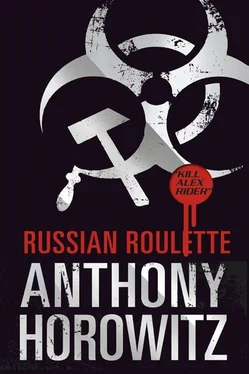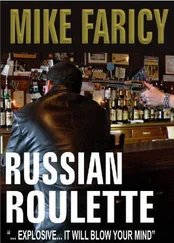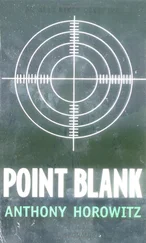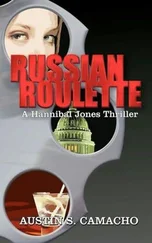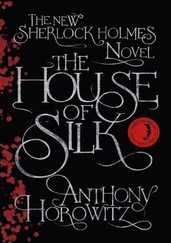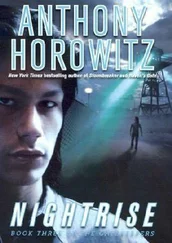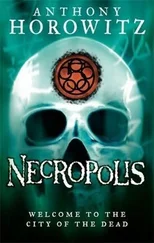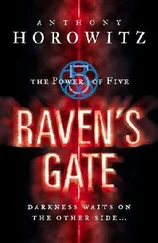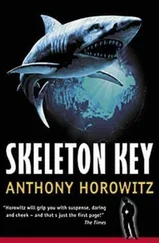Now I understood why Sharkovsky had chosen to live here. The landscape – flat and green with its pine forests, lakes and beaches – was very beautiful. I saw a few riders on horseback. It was hard to believe that I had been so close to the city during my three years at the dacha . But here the noise of the traffic was replaced by soft breezes and birdsong. There were no tall buildings breaking the skyline.
A narrow private road led to the dacha . I followed it for a while, then slipped behind the trees that grew on either side. It was unlikely that Sharkovsky had planted sensors underneath the concrete and there was no sign of any cameras, but I could not be sure. Eventually, the outer wall came into sight. I recognized the shape of it, the razor wire and the brickwork even from the outside.
It was not going to be difficult to break in. Sharkovsky prided himself on his security network but I had been trained by experts. His men went through the same procedures, day in and day out. They acted mechanically, without thinking. And how many times had it been drummed into me on Malagosto? Habit is a weakness. It is what gets you killed. Certain cars and delivery trucks always arrived at the dacha at a given time. I remembered noting them down in my former life, scribbling in the back of an exercise book. Madness! It was a gift to the enemy.
The laundry van arrived shortly after five o’clock, by which time it was already dark. I knew it would come. I had lost count of the number of times I had helped to empty it, carrying dirty sheets out and fresh linen in. As the driver approached the main gate, he saw a branch that seemed to have fallen from a tree, blocking the way. He stopped the van, got out and moved it. When he got back in again, he was unaware that he had an extra passenger. The back door hadn’t been locked. Why should it have been? It was only carrying sheets and towels.
The van reached the barrier and stopped. Again, I knew exactly what would happen. I had seen it often enough and it was imprinted in my mind. There were three guards inside the security hut. One of them was meant to be monitoring the TV cameras but he was old and lazy and was more likely to have his head buried in a newspaper. The second man would stay on the left-hand side of the van to check the driver’s ID, while the third searched underneath the vehicle, using a flat mirror on wheels. I timed the moment exactly, then slipped out of the back and hid on the left-hand side, right next to the security hut, lost in the shadows. Now the first guard opened the back and checked inside. He was too late. I had gone. I heard him rummaging around inside. Eventually, he emerged.
“All right,” he called out. “You can move on.”
It was very kind of him to let me know when it was safe. I dodged round, still shielded by the van, and climbed back inside. The driver started the van and we rolled forward, on our way to the house.
It was a simple matter to slip out again once we had stopped. I knew where we would be, next to the side door that all the servants and delivery people used. I was careful not to step on the grass. I remembered where the sensors were positioned. I was also careful to avoid the CCTV cameras as I edged forward. Even so, I was astonished to find that the door was not locked. Sharkovsky was a fool! I would have advised him to rethink all his security arrangements after a paid assassin had made it into the house – and certainly after Arkady Zelin and I had escaped with him. That made three people who knew his weaknesses. But then again, he had been in hospital for a very long time. His mind had been on other things.
I found myself inside, back in those familiar corridors. The laundry man had gone ahead and the housekeeper had gone with him. I passed the kitchen. Pavel was still there. The chef was bending over the stove, putting the finishing touches to the pie that he was planning to serve that evening. I knew I didn’t have to worry about him. He was slightly deaf and absorbed in his work. However, there was something I needed. I reached out and unhooked the key to Sharkovsky’s Lexus. Had I been in charge here, I would have suggested that all the keys should themselves be kept locked up somewhere more safe. But that was not my concern. It seemed only right that the car that had first brought me here would also provide my means of escape. It was bulletproof. I would be able to smash through the barrier and nobody would be able to stop me.
How easy it all was – and it had been in front of me all the time! But of course, I had been seeing things with very different eyes back then. I was a village boy. I had never heard of Scorpia. I knew nothing.
I continued forward, knowing that I would have to be more careful from this point on. Things must have changed inside the house. For a start, the two bodyguards – Josef and Karl – would have been replaced, one of them buried and the other fired. Sharkovsky might have a new, more efficient team around him. But the hall was silent. Everything was as I remembered it, right down to the flower display on the central table. I tiptoed across and slipped through the door that led down to the basement. This was where I would wait until dinner had been served, in the same room where I had been shown the body of the dead food taster.
I did not climb upstairs again until eleven o’clock, by which time I imagined everyone would be in bed. I had been able to make out some of the sounds coming from above and it was clear to me that there had been no formal dinner party that night. The lights were out. There was nobody in sight. I went straight into Sharkovsky’s study. I was concerned that the Dalmatian might be there but thought it would remember me and probably wouldn’t bark. In fact, there was no sign of it. Perhaps Sharkovsky had got rid of it. There was a fire burning low in the hearth and the glow guided me across the room as I approached the desk. I was looking for something and found it in the bottom drawer. Now all that remained was to climb upstairs to the bedroom at the end of the corridor where Sharkovsky slept.
But as it turned out, it was not necessary. To my surprise, the door opened and the lights in the room were turned on. It was Sharkovsky, on his own. He did not see me. I was hidden behind the desk but I watched as he closed the door and, with difficulty, manoeuvred himself into the room.
He was no longer walking. He was in a wheelchair, dressed in a silk dressing gown and pyjamas. Either he was now sleeping downstairs or he had built himself a lift. He was more gaunt than I remembered. His head was still shaved, his eyes dark and vengeful but now they seemed to sparkle with the memory of pain. His mouth was twisted downwards in a permanent grimace and his skin was grey, stretched over the bones of his face. Even the colours of his tattoo seemed to have faded. I could just make out the eagle’s wings on his chest beneath his pyjama top. Every movement was difficult for him. I guessed that he had indeed broken his neck when he had fallen. And although the bullets had not killed him, they had done catastrophic harm, leaving him a wreck.
The door was shut. We were alone. I had quickly taken out a pair of wire cutters and used them but now I stood up, revealing myself. I was holding the gun, the revolver that he had handed to me the first time I had come to this room. In my other hand, there was a box of bullets.
“Yassen Gregorovich!” he exclaimed. His voice was very weak as if something inside his throat had been severed. His face showed only shock. Even though I was holding a gun, he did not think himself to be in any danger. “I didn’t expect to see you again.” He sneered at me. “Have you come back for your old job?”
“No,” I said. “That’s not why I’m here.”
Читать дальше
